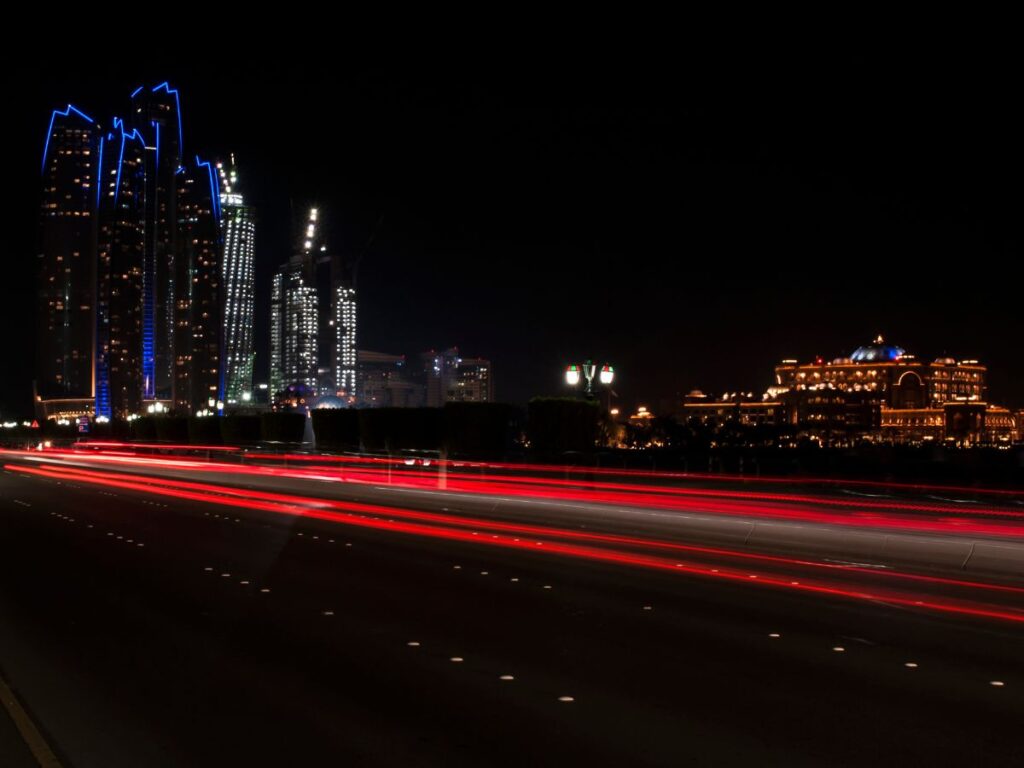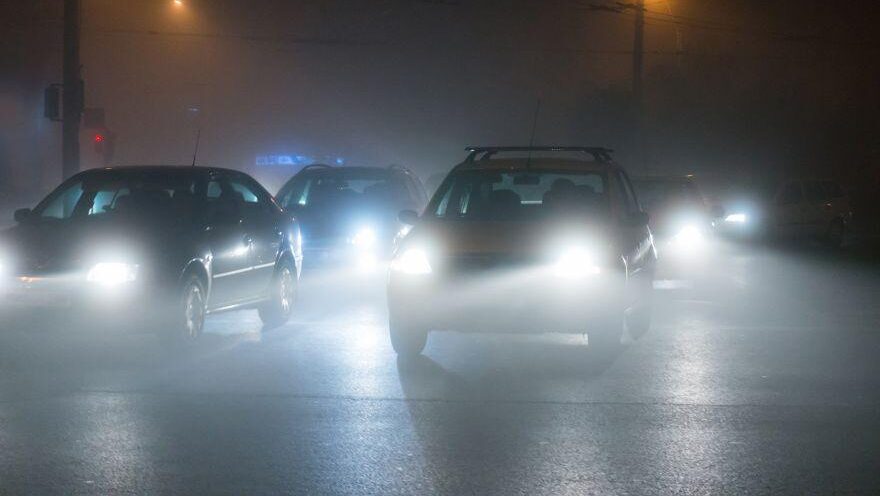Imagine driving down a long, quiet road at night. The city lights fade behind you, the desert breeze blows across the open road, and suddenly, visibility drops. Now picture the same drive without headlights. It becomes more than just a risk it is a gamble with life. Headlights are not just about seeing the road; they are about making sure others see you. They are a basic yet powerful safety tool that ensures every driver, passenger, and pedestrian is protected. In the UAE, where highways stretch for miles and traffic often includes fast-moving vehicles, missing headlights can instantly turn an ordinary drive into a life-threatening situation.
Driving without headlights at night is not just a mistake, it is an offense that can cost you heavily. The UAE authorities have made it clear that road safety is not optional. With strict traffic rules in place, failing to switch on your headlights after sunset could land you with a fine, black points on your license, or even a temporary vehicle confiscation. This rule is not about punishment, it is about preventing disasters before they happen.
Understanding the UAE’s traffic fine system
The UAE has long been known for its strong traffic regulations designed to minimize road accidents and improve overall safety. The country takes a preventive approach, enforcing fines that act as reminders for drivers to stay responsible. When it comes to night driving, headlights are non-negotiable.
The fine for driving without headlights at night may seem heavy to some, but it reflects the seriousness of the risk. The authorities don’t see it as just a traffic violation; they see it as negligence that could cost lives. Many accidents globally occur because drivers failed to turn on their headlights or because vehicles were simply invisible on dark roads. By enforcing this rule, the UAE ensures drivers stay conscious of their responsibilities on the road.
How much is the fine?
The exact fine amount for driving without headlights at night in the UAE is set to be a financial penalty that stings enough to make drivers cautious. Along with the fine, drivers may also receive black points on their license, which can eventually lead to suspension if repeated. In some cases, vehicles may even be impounded for reckless negligence.
This strict approach serves two purposes. First, it discourages careless behavior. Second, it sets a standard for accountability. Drivers in the UAE know that every move they make on the road is monitored, and failing to meet safety expectations has direct consequences.

Why this law saves lives
When headlights are off, your vehicle becomes almost invisible, especially on highways where cars are moving at high speeds. In low-lit or unlit areas, the chances of a collision increase drastically. Even if you are driving carefully, another driver may fail to see your car in time, and the result could be catastrophic.
Headlights are also crucial in helping you read road signs, detect sudden curves, or notice animals crossing in rural areas. In rainy or foggy conditions, headlights act as a lifeline for visibility. Without them, even the most skilled driver is vulnerable.
This is why the UAE treats this offense as more than a small mistake. It is a matter of life and death. By enforcing fines, the government ensures drivers don’t forget the importance of something as simple as switching on headlights.
Awareness campaigns and education
The UAE does not stop at fines; it also invests heavily in awareness campaigns. Road safety messages can often be seen across billboards, social media, and public service announcements. Campaigns remind drivers about using headlights, seat belts, indicators, and other critical safety measures.
These campaigns aim to build a culture of responsibility, especially among young drivers who may underestimate risks. By combining education with strict penalties, the UAE ensures that the message of safety is not only heard but also practiced daily.
Comparisons with global standards
The UAE’s approach to traffic safety aligns with many developed countries where similar fines exist. In Europe and North America, driving without headlights at night is also treated as a serious violation. In fact, some countries require daytime running lights to ensure vehicles are always visible.
By following international best practices, the UAE reinforces its commitment to road safety. The country’s growing population and high number of expats from different driving cultures make it essential to maintain clear, strict, and universal rules.
Preventing accidents through strict enforcement
Every fine has a purpose. The goal is not to collect money but to prevent accidents. When drivers know there are consequences for risky behavior, they are more likely to act responsibly.
For example, speeding fines in the UAE are some of the strictest in the world, and as a result, drivers are far more cautious compared to regions with lenient penalties. The same logic applies to headlights. A driver who forgets once may not forget again after paying a fine and realizing the seriousness of the matter.

What drivers should remember
The rule is simple: if you are driving after sunset, your headlights must be on. This applies to city roads, highways, and rural areas. Even if you think the streetlights provide enough illumination, your vehicle still needs to be visible to others.
Drivers should also make a habit of checking their vehicle’s lights before starting a journey. A blown bulb or faulty headlamp could lead to the same problem. Regular vehicle maintenance plays a huge role in ensuring road safety.
Technology and modern vehicles
Newer cars in the UAE often come equipped with automatic headlight systems that turn on when it gets dark. While this feature helps, drivers should not rely blindly on technology. Always double-check that your headlights are on, especially during sudden weather changes like fog or sandstorms.
Electric and luxury cars also come with advanced lighting systems, but the basic rule remains unchanged: headlights must be on when visibility is low. Ignorance or overconfidence in technology is no excuse for negligence.
The human side of road safety
At the heart of every traffic rule is one goal: to protect lives. Behind every fine issued is a reminder that someone’s life matters. A simple action like switching on headlights could mean the difference between a safe drive and a fatal crash.
When we look at road accidents, the tragedy is not just about vehicles or statistics. It is about families torn apart, dreams left unfulfilled, and lives that could have been saved with just a little care. The UAE’s strict traffic rules may feel tough at times, but they are designed to prevent such heartbreak.
Conclusion: Responsibility starts with you
Driving is not just about getting from one place to another. It is about sharing the road with hundreds of others and making sure every journey is safe. The fine for driving without headlights at night in the UAE may seem strict, but it is a small price to pay compared to the cost of a life lost in an accident.
Responsibility on the road begins with awareness. The headlights on your vehicle are not just pieces of glass and bulbs; they are your shield against danger. They allow you to see and be seen, ensuring that every drive ends safely.
The next time you start your car at night, remember that turning on your headlights is not just a law it is a promise of safety, for you and everyone around you. In the UAE, where safety is a shared priority, this simple habit can save lives, avoid fines, and keep the roads bright and secure for all.
Do follow Gulf Magazine on Instagram.
Also Read – GCC Records $2.14 Trillion Gross National Income in 2023: Growth, Diversification, and Future Vision


